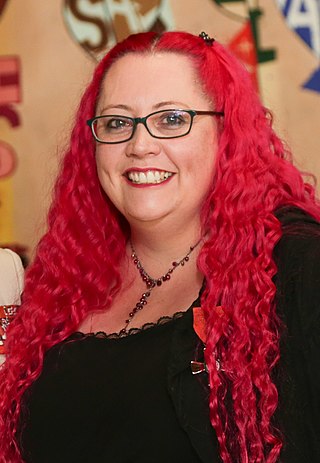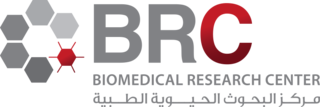Related Research Articles

Antimicrobial resistance (AMR) occurs when microbes evolve mechanisms that protect them from the effects of antimicrobials. All classes of microbes can evolve resistance where the drugs are no longer effective. Fungi evolve antifungal resistance, viruses evolve antiviral resistance, protozoa evolve antiprotozoal resistance, and bacteria evolve antibiotic resistance. Together all of these come under the umbrella of antimicrobial resistance. Microbes resistant to multiple antimicrobials are called multidrug resistant (MDR) and are sometimes referred to as superbugs. Although antimicrobial resistance is a naturally occurring process, it is often the result of improper usage of the drugs and management of the infections.
Sir Richard Brook Sykes is a British microbiologist, the chair of the Royal Institution, the UK Stem Cell Foundation, and the trustees at King Edward VII's Hospital, and chancellor of Brunel University. As of June 2021, he is chair of the UK's Vaccine Taskforce, where he is responsible for overseeing the delivery of the COVID-19 vaccination programme, including preparations for booster programmes and encouraging vaccine innovation in the UK.

Stanley "Stan" Falkow was an American microbiologist and a professor of microbiology at Georgetown University, University of Washington, and Stanford University School of Medicine. Falkow is known as the father of the field of molecular microbial pathogenesis. He formulated molecular Koch's postulates, which have guided the study of the microbial determinants of infectious diseases since the late 1980s. Falkow spent over 50 years uncovering molecular mechanisms of how bacteria cause disease and how to disarm them. Falkow also was one of the first scientists to investigate antimicrobial resistance, and presented his research extensively to scientific, government, and lay audiences explaining the spread of resistance from one organism to another, now known as horizontal gene transfer, and the implications of this phenomenon on our ability to combat infections in the future.
Christopher T. Walsh was a Hamilton Kuhn professor of biological chemistry and pharmacology at Harvard Medical School. His research focused on enzymes and enzyme inhibition, and most recently focused on the problem of antibiotic resistance. He was elected to the National Academy of Sciences in 1989.
Julian Edmund Davies is a British-born microbiologist and Professor Emeritus in the Department of Microbiology and Immunology at the University of British Columbia.

Lucy Shapiro is an American developmental biologist. She is a professor of Developmental Biology at the Stanford University School of Medicine. She is the Virginia and D.K. Ludwig Professor of Cancer Research and the director of the Beckman Center for Molecular and Genetic Medicine.

Stuart Blank Levy was a researcher and physician at Tufts University. He was among the first to advocate for greater awareness of antibiotic resistance and founded the Alliance for the Prudent Use of Antibiotics.

Siouxsie Wiles is a British microbiologist and science communicator. Her specialist areas are infectious diseases and bioluminescence. She is based in New Zealand.
Guan Yi is a Chinese virologist. In 2014, he was ranked as 11th in the world by Thomson Reuters among global researchers in the field of microbiology. He obtained his PhD in microbiology at the University of Hong Kong and is now a professor of microbiology at his alma mater. His research on the viral respiratory disease SARS helped the Chinese government avert the 2004 outbreak of this disease. He is the current director of the State Key Laboratory for Emerging Infectious Diseases University of Hong Kong. In early 2017, Guan warned that the H7N9 influenza virus "poses the greatest threat to humanity than any other in the past 100 years".
Sharon Jayne Peacock is a British microbiologist who is Professor of Public Health and Microbiology in the Department of Medicine at the University of Cambridge. Peacock also sits on Cambridge University Council.

Ramanan Laxminarayan Ph.D., M.P.H., FIDSA is an economist and an epidemiologist. He is founder and director of the One Health Trust – formerly known as the Center for Disease Dynamics, Economics & Policy (CDDEP) – in Washington, D.C., and director of the World Health Organization Collaborating Center for Antimicrobial Resistance. Laxminarayan is a senior research scholar at Princeton University, an affiliate professor at the University of Washington, a senior associate at the Johns Hopkins Bloomberg School of Public Health, and a visiting professor at the University of Strathclyde. In 2023, he was appointed an honorary visiting professor at the National University of Singapore Saw Swee Hock School of Public Health. His research on epidemiological models of infectious diseases and economic analysis of drug resistance, and research on public health gets attention from leaders and policymakers worldwide. He served on the President Obama's Council of Advisors on Science and Technology’s antimicrobial resistance working group. He served as a voting member of the U.S. Presidential Advisory Council on Combating Antimicrobial Resistance from 2015 to 2023. He has served as chairperson of the Global Antibiotic Research and Development Partnership (GARDP), a not-for-profit organization dedicated to developing new antimicrobials, since its founding. GARDP was created by the World Health Organization and the Drugs for Neglected Diseases Initiative (DNDi).

Jacques Fouad Acar was a French doctor and microbiologist who specialized in antibiotics.

Robin Patel is a Canadian born microbiologist and Elizabeth P. and Robert E. Allen Professor of Individualized Medicine, a Professor of Microbiology, and a Professor of Medicine at the Mayo Clinic. She is widely recognized as a leader in the field of clinical microbiology and has held a variety of leadership positions including 2019–2020 President of the American Society for Microbiology (ASM) and Director of the Antibacterial Resistance Leadership Group (ARLG) Laboratory Center of the National institutes of Health. She is currently the Vice Chair of Education in the Department of Laboratory Medicine and Pathology at the Mayo Clinic, and Director of the Mayo Clinic's Infectious Diseases Research Laboratory, where she studies biofilms, antimicrobial resistance, periprosthetic joint infection and diagnostic testing of bacteria.

Abigail A. Salyers was a microbiologist who pioneered the field of human microbiome research. Her work on the bacterial phylum Bacteroidetes and its ecology led to a better understanding of antibiotic resistance and mobile genetic elements. At a time where the prevailing paradigm was focused on E. coli as a model organism, Salyers emphasized the importance of investigating the breadth of microbial diversity. She was one of the first to conceptualize the human body as a microbial ecosystem. Over the course of her 40-year career, she was presented with numerous awards for teaching and research and an honorary degree from ETH Zurich, and served as president of the American Society for Microbiology.
Alasdair Macintosh Geddes is Emeritus Professor of Infection at the University of Birmingham Medical School. In 1978, as the World Health Organization (WHO) was shortly to announce that the world's last case of smallpox had occurred a year earlier in Somalia, Geddes diagnosed a British woman with the disease in Birmingham, England. She was found to be the index case of the outbreak and became the world's last reported fatality due to the disease, five years after he had gained experience on the frontline of the WHO's smallpox eradication programme in Bangladesh in 1973.
David Christopher Crossman is a physician who has been the Dean of the University of St Andrews School of Medicine since 2014 and was the Chief Scientist (Health) within the Health and Social Care Directorates of the Scottish Government from 2017 to 2022.

The Great Barrington Declaration was an open letter published in October 2020 in response to the COVID-19 pandemic and lockdowns. It claimed harmful COVID-19 lockdowns could be avoided via the fringe notion of "focused protection", by which those most at risk could purportedly be kept safe while society otherwise took no steps to prevent infection. The envisaged result was herd immunity within three months, as SARS-CoV-2 swept through the population.
John Charles Sherris was an English-American medical doctor, pathologist, and bacteriologist. He was the president of the American Society for Microbiology (ASM) in 1983.

The Biomedical Research Center (BRC) is a research center at Qatar University focusing on biomedical research. BRC was founded in 2014, and partners with the Ministry of Public Health (Qatar), and Hamad Medical Corporation (HMC).
Timothy Rutland Walsh is a professor working at the University of Oxford. He is a specialist in antimicrobial resistance. He is the Oxford Institute of Antimicrobial Research (IOI) Director of Biology. His work at IOI invlolves developing new antibiotics to use with animals, so that any antibiotic resistance developed in aminals would not affect humans. His IOI work also involves screening many chemicals to find new antimicrobial substances, and also to find those that inhibit antimicrobial resistance. Also he is invovled in documenting the large scale effects of antibiotic resistance in low to middle income countries, such as China, Pakistan and Tanzania.
References
- 1 2 Livermore, David (10 October 2020). "Protect the elderly, but let's see life back to normal for those at low risk". Daily Telegraph . Archived from the original on 11 October 2020. Retrieved 11 October 2020.
- ↑ "Professor David Livermore". British Society for Antimicrobial Chemotherapy. Retrieved 11 October 2020.
- ↑ Rumbaugh, Kendra P.; Ahmad, Iqbal (2014). Antibiofilm Agents: From Diagnosis to Treatment and Prevention. Springer Science & Business Media. p. 473. ISBN 978-3-642-53832-2.
- ↑ Ahmed N (1 April 2021). "Disinformation Lobbyists and Brexit Business Bosses Finance Conservative COVID Sceptics' PR". Byline Times.
- ↑ https://dailysceptic.org/2023/09/11/lucy-letby-must-be-allowed-an-appeal/